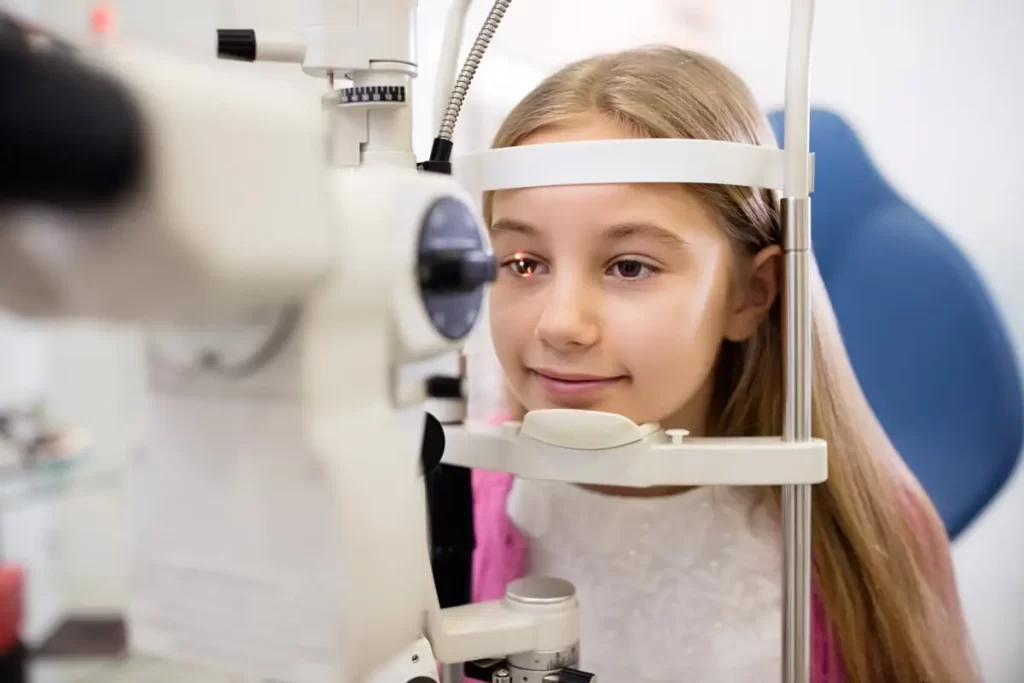Understanding the Comprehensive Nature of Vision Beyond Just Clear Sight
While many individuals typically associate an optometrist solely with providing prescriptions for corrective glasses or offering solutions for conditions like dry, fatigued eyes, it is crucial to acknowledge that not all visual challenges stem from mere blurry vision. In fact, there are instances where the eyes may appear completely healthy, yet individuals may face difficulties such as challenges in reading comprehension, stagnation in educational development, or a significant decline in concentration and focus as the day progresses. Identifying these subtle indicators can be pivotal in addressing underlying vision issues that might otherwise remain unnoticed and unaddressed, ultimately impacting quality of life.
At Eyes by Design, our expertise lies in behavioural optometry, which signifies a sophisticated clinical approach that transcends the basic ability to see clearly. Our focus is on understanding how the entire visual system contributes to enhancing learning performance and facilitating everyday activities. This perspective acknowledges that vision is not a static condition; rather, it is a dynamic interplay among the eyes, the brain, and the body, all functioning collaboratively to create a seamless and effective visual experience that supports all aspects of life.

Discovering the Fundamental Principles and Benefits of Behavioural Optometry
Behavioural optometry, often referred to as functional or developmental optometry, is built upon the understanding that clear vision is merely the starting point for a comprehensive visual experience. For vision to provide maximum benefit, the eyes must operate efficiently, track accurately, flexibly adapt focus, and relay information to the brain in a manner that enhances movement, posture, memory, and learning processes. This vital approach ensures that all aspects of visual functioning are harmoniously integrated.
This holistic approach includes several critical elements that shape effective vision:
- Effortless tracking across books, pages, and digital screens
- Swift and reliable focusing across varying distances
- Effective coordination between both eyes for optimal performance
- Enhanced spatial awareness and body control
- Accurate visual processing during real-time activities
A behavioural optometrist conducts extensive evaluations of these interconnected systems, with the primary aim of determining not only if you can see clearly but also whether your visual system is functioning optimally to enhance your daily activities and social interactions. This thorough assessment process is essential for identifying any underlying issues that might impede visual performance.

Identifying Key Signs That Visual Challenges May Be Impacting Your Life
1. Your Child Struggles with Reading Despite Being Articulate and Intelligent
A child who is both intelligent and expressive yet struggles with reading may not necessarily have a learning disability. Instead, they could be facing visual dysfunction. Symptoms like skipping lines, using fingers to follow along, or reporting that words appear to blur or shift positions are critical signals that warrant further examination. We conduct thorough assessments of how the eyes perform during sustained near tasks, such as reading, where even minor inefficiencies often go unnoticed during conventional testing.
2. Experiencing Frequent Headaches or Eye Strain After Prolonged Screen Time
Many individuals tend to dismiss digital eye strain as a common issue; however, symptoms such as pressure behind the eyes, end-of-day headaches, or difficulties focusing on screens can suggest a breakdown in visual coordination. Through our detailed behavioural assessments, we can determine whether the muscles responsible for eye alignment and focus are being overworked due to the demands of screen-based activities, which can lead to significant discomfort.
3. Exhibiting Poor Coordination, Clumsiness, or Hesitance in Engaging in Sports
Vision plays an essential role in facilitating movement and coordination. If a child seems to shy away from ball sports, struggles to catch objects, or faces challenges maintaining balance, these behaviours may be intricately connected to how their brain interprets visual-spatial cues. Such patterns often reflect difficulties in visual-motor integration rather than a lack of athletic capability, indicating a need for further evaluation.
4. An Expressive Child Who Faces Difficulties with Written Assignments
Many children who are naturally inquisitive and verbally articulate may struggle academically because they are exerting excessive effort to track and process written material. Behaviours such as fidgeting, daydreaming, slow task completion, or resistance to reading could stem from unrecognised functional vision issues, rather than mere disinterest or defiance, which can be crucial for parents and educators to understand.
5. Ongoing Difficulties Despite Wearing Corrective Glasses
Some patients continue to experience challenges even after multiple adjustments to their prescription glasses. They might struggle to relax their eyes, encounter depth perception issues, or never feel visually comfortable. This often indicates underlying problems with eye teaming or neurological processing rather than simple refractive errors, highlighting the importance of comprehensive evaluations.

What to Expect During an In-Depth Behavioural Optometry Evaluation
At Eyes By Design, we implement a comprehensive, systematic, and highly personalised approach to our assessments. We meticulously examine how your eyes move, work together, and respond to various demands throughout daily activities. Our primary focus areas include:
- Control and precision of eye movements
- Flexibility and endurance in focusing
- Alignment and coordination of the eyes
- Visual memory and cognitive load management strategies
- Coordination and spatial reasoning abilities
Based on our findings, we create a tailored plan that may incorporate therapeutic lenses, vision therapy, or practical adjustments to your environment, whether at school or in the workplace. This ensures a customised approach to enhancing your visual experience and overall functionality, ultimately leading to improved daily life.
Understanding the Significance of Vision in Daily Life and Learning Efficiency
If you or your child are encountering daily challenges that conventional eye examinations cannot elucidate, a behavioural optometry assessment may uncover the underlying factors contributing to these frustrations. This thorough process extends beyond merely achieving clearer vision; it encompasses the pursuit of more comfortable seeing, increased confidence in movement, and enhanced learning efficiency, ultimately leading to a better quality of life.
At Eyes By Design in Kincumber, we are dedicated to assisting individuals in realising the full potential of their vision through comprehensive behavioural care. Our holistic strategy seeks to address the intricate nature of vision and its substantial impact on overall quality of life, ensuring that our clients can thrive in their daily activities.
This article aims to enhance understanding and knowledge regarding general eye health topics.
It should not replace professional advice, diagnosis, or treatment.
Always consult your healthcare professional before incorporating this information into your health regimen.

Dr Nicholas Altuneg
For over two decades, my utmost passion has been to empower individuals of all ages to lead improved lives through enhanced vision. At Eyes by Design, we maintain that vision encompasses far more than simply the ability to see clearly or read small letters from a distance; it profoundly shapes your perceptions and responses at every moment of the day.
Read more about Dr Nick
The Article: Signs You Need a Behavioural Optometrist first appeared on https://writebuff.com
The Article Behavioural Optometrist: Key Signs You Shouldn’t Ignore Was Found On https://limitsofstrategy.com

